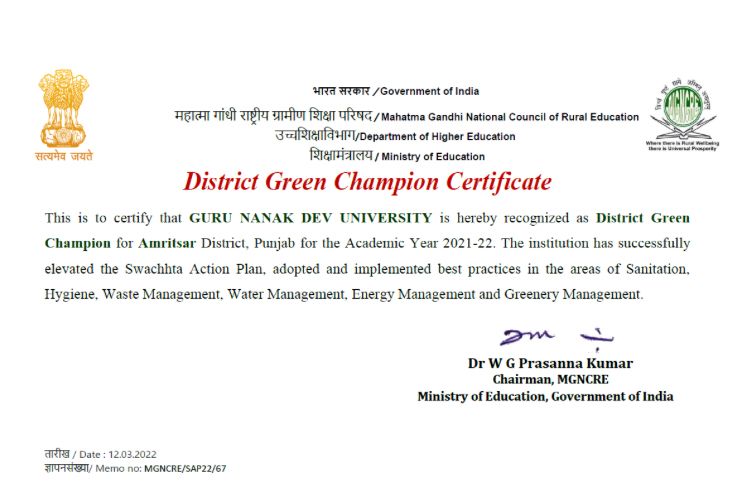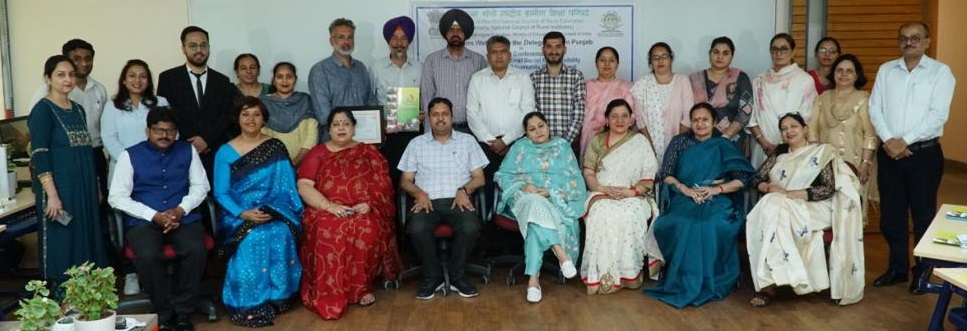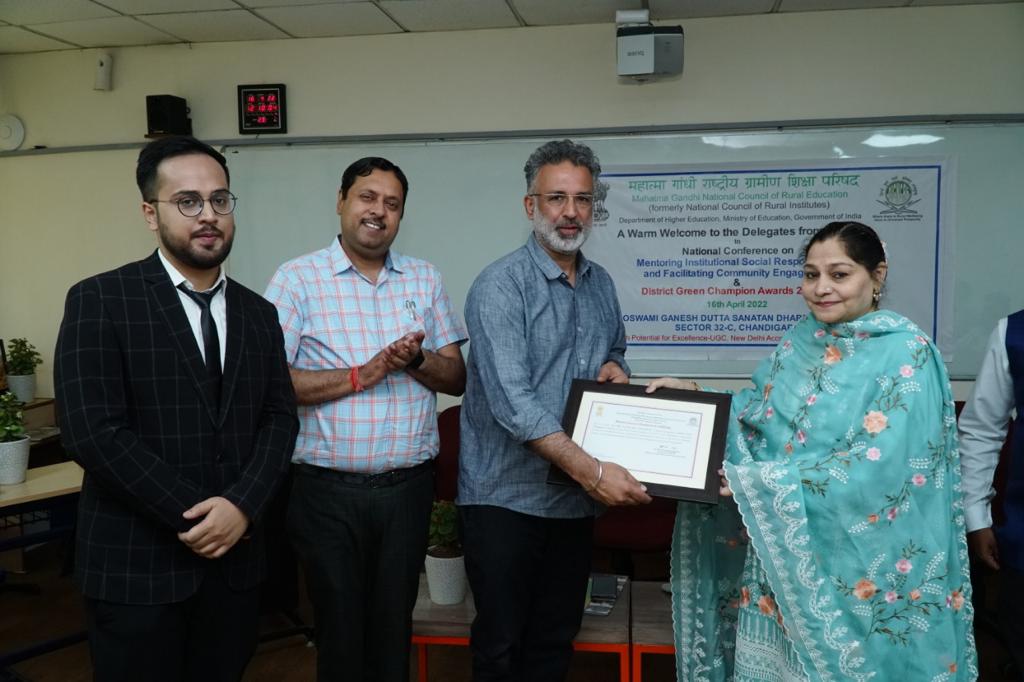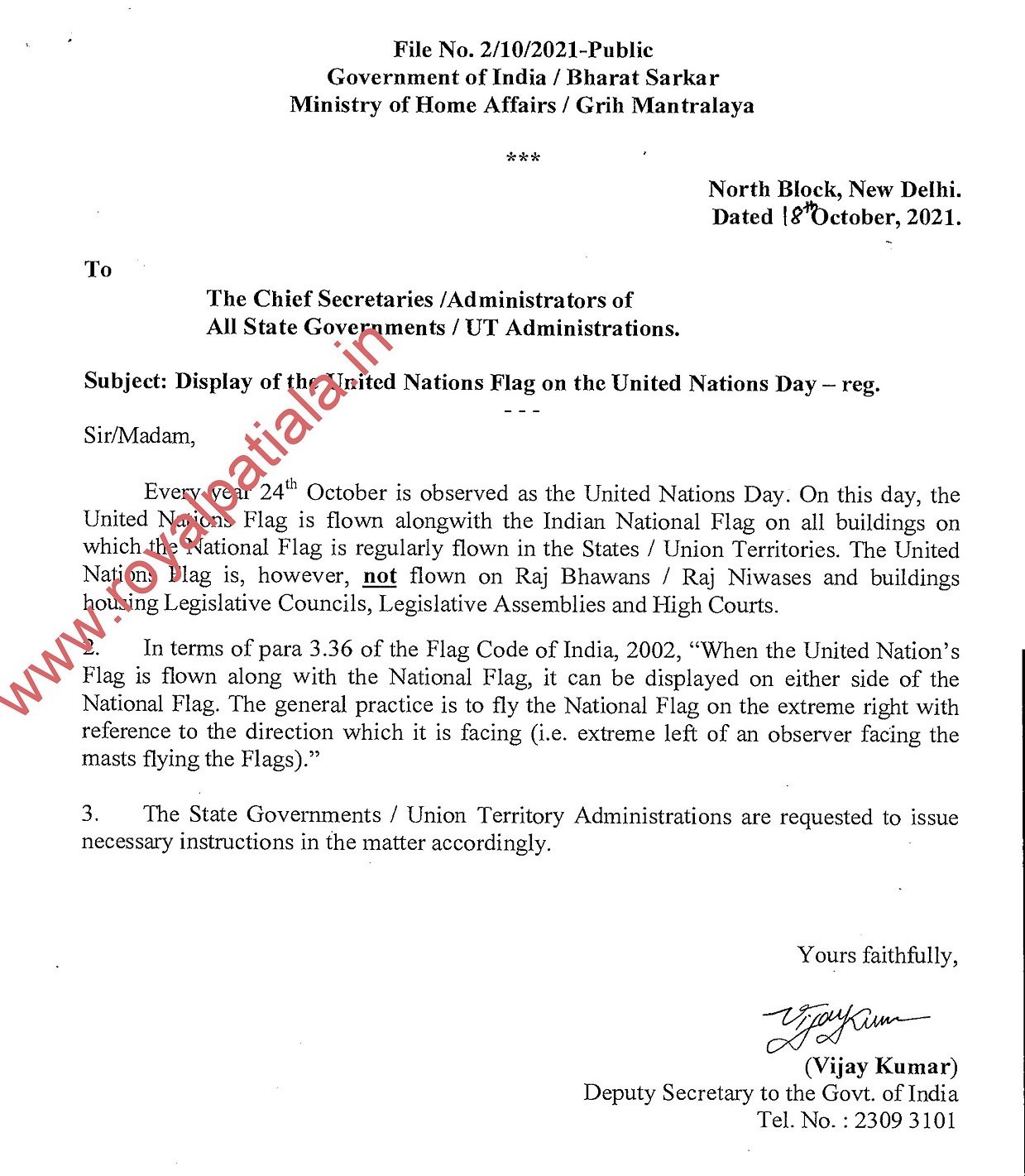GNDU receives the District Green Champion award from MGNCRE
Kanwar Inder Singh/ royalpatiala.in
Guru Nanak Dev University was named “One District One Green Champion” for the year 2021-22 by the Mahatma Gandhi National Council of Rural Education (MGNCRE), Department of Higher Education, Ministry of Education, Government of India. The award is part of the “Swachhta Expansion and Awareness Campaign”, a government initiative. Swachhta Action Plan (SAP) that has been upgraded and includes best practices in the areas of sanitation, hygiene, waste management, water management, energy management, and greenery management as the criteria to select the Green Champions from each district of India.

GNDU receives the District Green Champion award from MGNCRE. The award was received by the university delegate on behalf of Prof. (Dr.) Jaspal Singh Sandhu, Vice-Chancellor, GNDU. The award was given by Indu Malhotra (IAS), Secretary Lokpal and State Election Commission and Managing Director Punjab Financial Corporation during one day Mini National Conference, SAP 2022 on ‘Mentoring Institutional Social Responsibility and Facilitating Community Engagement’ organized by MGNCRE, Hyderabad at Chandigarh.

A zero-liquid-discharge wastewater treatment facility housing an aeration tank, tube settler followed by two-stage oxidation cum polishing ponds, a solid-liquid resource management cell, a landscaping department, and a separate stormwater sewer for water management are all available at the institution. The institution has more than 90% green spaces in a sprawling campus of 500 acres. About 150 tree species are available on the campus and the total number of trees and shrubs are more than 30000. The botanical garden of the university was established in 1975 and is spread over 25 acres of land. It has about 500 species of trees, shrubs and medicinal plants. It houses an open-air theatre, lily pool, aquatic pond, fern house and herbal garden. Prof. Sandhu envisions a hundred per cent reuse of treated wastewater in the botanical garden, significant tree planting, a battery-operated fleet of buses for students and staff, and rooftop solar harvesting as examples of the university’s commitment to sustainable growth.
April 20,2022













